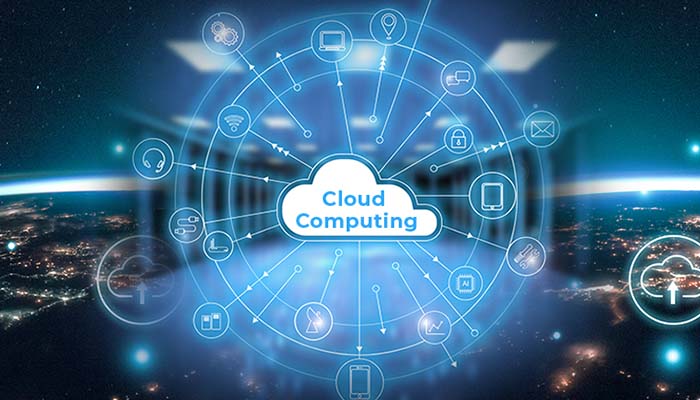
Table of Contents
ToggleHigh-Performance Cloud Computing: Powering the Future of Technology
High-Performance Cloud Computing (HPCC) is revolutionizing how businesses, researchers, and individuals leverage computational power for their most demanding tasks. It combines the scalability of cloud computing with the speed and efficiency of high-performance computing (HPC), offering unparalleled performance for data-intensive applications. In this blog, we’ll explore HPCC in detail, focusing on its benefits, real-world applications, evolution, and future trends.
What is High-Performance Cloud Computing?
High-Performance Cloud Computing refers to the integration of HPC capabilities into cloud platforms. It provides users with on-demand access to vast computational resources, such as supercomputers, storage, and specialized software, over the internet.
Unlike traditional HPC systems, which require significant investment in hardware, HPCC leverages cloud infrastructure to deliver similar power at a fraction of the cost, making it accessible to organizations of all sizes.
Benefits of High-Performance Cloud Computing

- Scalability
HPCC allows users to scale resources up or down based on workload demands, ensuring cost-effectiveness and flexibility. - Cost Efficiency
By adopting a pay-as-you-go model, organizations save on upfront costs for hardware and maintenance. - Global Accessibility
Cloud-based solutions enable users to access high-performance resources from anywhere, fostering global collaboration. - Time Efficiency
With rapid deployment and reduced need for physical infrastructure, HPCC minimizes project lead times. - Enhanced Productivity
HPCC streamlines workflows by automating resource allocation and providing real-time analytics. - Eco-Friendliness
Shared resources reduce energy consumption compared to maintaining individual data centres, contributing to sustainability. - Disaster Recovery and Backup
HPCC simplifies disaster recovery by providing secure, off-site backups for critical data. - Support for Remote Work
High-performance resources accessible from anywhere enable seamless remote work environments. - Faster Innovation
HPCC accelerates R&D processes, enabling quicker innovation cycles. - Interdisciplinary Collaboration
Facilitates collaboration across different domains by providing shared access to resources and tools.
Applications of High-Performance Cloud Computing
1. Scientific Research
HPCC is pivotal in genomics, astrophysics, and climate modelling. For instance, researchers at NASA use cloud-based HPC systems for complex space simulations.
2. Financial Modelling
Financial institutions utilize HPCC for risk analysis, algorithmic trading, and fraud detection, improving decision-making speed and accuracy.
3. Healthcare and Pharmaceuticals
HPCC accelerates drug discovery and genomic sequencing, as demonstrated during the development of COVID-19 vaccines.
4. Artificial Intelligence and Machine Learning
AI models require immense computational power, which HPCC efficiently provides, supporting training, inference, and deployment of complex algorithms.
5. Media and Entertainment
Rendering high-quality animations and special effects in films has become faster and more cost-effective with HPCC.
6. Manufacturing and Engineering
Simulations for product designs, stress testing, and optimization in industries like automotive and aerospace rely heavily on HPCC.
7. Smart Cities Development
HPCC supports real-time data analysis for traffic management, energy optimization, and smart infrastructure.
8. Agriculture Technology
Helps analyse weather patterns and optimize crop yields using AI-driven simulations.
9. Gaming Industry
Enhances cloud gaming by offering low latency and high computational power for complex graphics.
10. Blockchain Technology
Provides the necessary computational resources for mining, transaction processing, and running decentralized applications.
Case Studies in HPCC
- CERN’s Large Hadron Collider (LHC)
CERN uses HPCC to analyse petabytes of data from the LHC, enabling ground-breaking discoveries in particle physics. - Pfizer
Pfizer leverages HPCC for molecular modelling and drug research, significantly reducing the time to market for new drugs. - Pixar Animation Studios
HPCC powers Pixar’s complex rendering processes, ensuring high-quality animation production on tight schedules. - Virtual Reality (VR) and Augmented Reality (AR)
HPCC powers immersive experiences in gaming, training, and simulations. - Space Exploration
Organizations like SpaceX leverage HPCC for mission simulations and satellite data analysis.
Evolution of High-Performance Cloud Computing
- Early Days of HPC
HPC began as standalone supercomputers for research and military applications. These systems were expensive and limited to large organizations. - Introduction of Cloud Computing
The rise of cloud computing in the early 2000s brought on-demand resource availability to the forefront, laying the foundation for HPCC. - Integration of HPC and Cloud
Companies like AWS, Google, and Microsoft began offering HPC capabilities through their cloud platforms, blending scalability with computational power. - Emergence of Edge Computing
Recent advancements in edge computing have further enhanced HPCC by reducing latency and enabling real-time processing at the source of data generation.
Future Trends in High-Performance Cloud Computing
- Quantum Computing Integration
Quantum computing will enhance HPCC, providing solutions to problems beyond classical computational limits. - AI-Driven Resource Optimization
Machine learning algorithms will optimize resource allocation, improving cost-efficiency and performance. - Hybrid Cloud Solutions
Combining public and private cloud environments will offer greater flexibility and security for HPCC users. - Increased Use in Small and Medium Enterprises (SMEs)
Affordable HPCC solutions will empower SMEs to compete with larger organizations in innovation and data analysis. - Focus on Sustainability
Green computing initiatives will drive energy-efficient HPCC solutions to reduce environmental impact. - 5G Integration
The convergence of 5G with HPCC will reduce latency and enhance data transfer speeds. - Autonomous Systems
HPCC will support self-driving cars, drones, and robotics through real-time data processing. - Personalized Medicine
Enables the development of tailored treatment plans based on individual genetic data. - Decentralized Cloud Solutions
Blockchain-driven decentralized cloud platforms will enhance security and reduce dependency on centralized systems.
Challenges and Barriers in HPCC Adoption
- Cost Concerns
While HPCC reduces hardware investment, long-term operational costs can be high for intensive workloads. - Data Security and Privacy
Protecting sensitive data in the cloud remains a critical challenge for organizations. - Complexity
Setting up and managing HPCC systems require specialized expertise, which may not be readily available. - Bandwidth Limitations
Dependence on high-speed internet can hinder performance in areas with limited connectivity. - Skill Development
Training programs and certifications can bridge the expertise gap for managing HPCC systems. - Cost Optimization Tools
Advanced tools like cost analysers can help businesses minimize operational expenses.
Real-World Examples of HPCC
- Amazon Web Services (AWS) High-Performance Computing
AWS provides scalable HPC solutions for industries like genomics, finance, and engineering. - Google Cloud HPC
Google Cloud offers HPCC services for AI, research, and analytics, supporting large-scale projects with its vast infrastructure. - Microsoft Azure HPC
Azure HPC powers simulations for automotive designs, medical research, and more, showcasing its versatility.
Conclusion: Shaping the Future with High-Performance Cloud Computing
High-Performance Cloud Computing is more than just a technological advancement—it’s a catalyst for innovation across industries. Its ability to combine scalability, efficiency, and affordability has made it an essential tool for solving complex problems and driving progress.
As technology evolves, HPCC will play a pivotal role in advancing fields like AI, healthcare, and sustainability, bridging the gap between imagination and reality. By overcoming challenges such as cost and data security, HPCC is poised to redefine the future of computing, empowering businesses, researchers, and individuals to achieve the extraordinary.
With its transformative potential, High-Performance Cloud Computing is not just a solution for today’s needs but a cornerstone of tomorrow’s possibilities.


